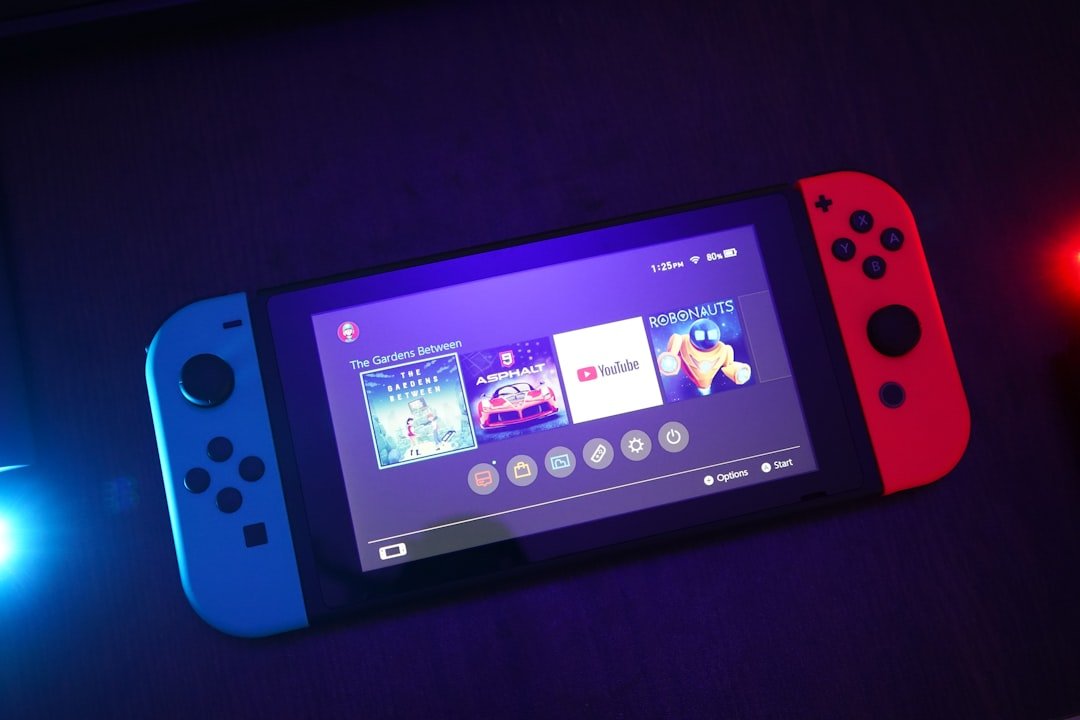Now Reading: Unlocking Education: Games as Effective Learning Tools
-
01
Unlocking Education: Games as Effective Learning Tools
Unlocking Education: Games as Effective Learning Tools

As I delve into the world of education, I find myself increasingly captivated by the concept of game-based learning. This innovative approach integrates the principles of gaming into the educational landscape, transforming traditional learning methods into engaging and interactive experiences. Game-based learning is not merely about playing games; it is about harnessing the motivational aspects of games to enhance the learning process.
By incorporating elements such as competition, rewards, and challenges, educators can create an environment where students are not just passive recipients of information but active participants in their own learning journey. The rise of technology has played a significant role in the proliferation of game-based learning. With the advent of digital platforms and educational software, I have witnessed how games can be tailored to meet specific learning objectives.
This adaptability allows for a more personalized approach to education, catering to diverse learning styles and paces. As I explore this dynamic field, I am eager to understand how game-based learning can reshape the educational experience for both students and teachers alike.
Key Takeaways
- Game-based learning is an innovative approach that uses games to engage students in the learning process and enhance their educational experience.
- The benefits of using games in education include increased student engagement, motivation, and retention of information, as well as the development of critical thinking and problem-solving skills.
- Educational games come in various types, including digital games, board games, and role-playing games, each offering unique opportunities for learning and skill development.
- Teachers can incorporate games into the classroom through game-based learning platforms, game design projects, and gamified learning activities to create an interactive and immersive learning environment.
- Gamification, the application of game elements and principles in non-game contexts, plays a crucial role in education by incentivizing learning, promoting collaboration, and fostering a positive learning experience for students.
The Benefits of Using Games in Education
One of the most compelling aspects of game-based learning is its ability to foster motivation and engagement among students. I have observed that when students are immersed in a game, they often exhibit a heightened sense of enthusiasm and curiosity. This intrinsic motivation can lead to deeper learning, as students are more likely to invest time and effort into mastering concepts when they are presented in a fun and interactive format.
The competitive nature of games can also encourage students to push their limits, striving for improvement and mastery. Moreover, games often promote collaboration and social interaction, which are essential components of effective learning. In my experience, when students work together to solve problems or achieve common goals within a game, they develop critical teamwork skills.
This collaborative environment not only enhances their understanding of the subject matter but also fosters a sense of community within the classroom. As I reflect on these benefits, it becomes clear that game-based learning can create a more dynamic and inclusive educational experience.
Types of Educational Games

As I explore the various types of educational games available, I am struck by the diversity and creativity that educators can leverage. One prominent category is simulation games, which allow students to engage in real-world scenarios in a controlled environment. For instance, I have seen students participate in simulations that mimic historical events or scientific processes, providing them with a hands-on understanding of complex concepts.
These immersive experiences can make abstract ideas more tangible and relatable. Another fascinating type of educational game is quiz-based games, which often incorporate elements of competition and instant feedback. I have found that these games can be particularly effective for reinforcing knowledge and assessing understanding.
By turning assessments into engaging challenges, students are more likely to retain information and feel motivated to improve their performance. Additionally, role-playing games offer opportunities for students to step into different characters or perspectives, fostering empathy and critical thinking skills as they navigate various scenarios.
Incorporating Games into the Classroom
Integrating games into the classroom requires thoughtful planning and consideration. In my experience, it is essential to align game activities with specific learning objectives to ensure that they serve a meaningful purpose. I have found that starting with small, manageable game-based activities can help ease both students and teachers into this new approach.
For example, incorporating short quiz games at the beginning or end of a lesson can serve as an effective way to gauge understanding while keeping students engaged. Furthermore, I believe that collaboration among educators is crucial when incorporating games into the curriculum. Sharing ideas and resources can lead to innovative approaches that enhance the overall learning experience.
In my own practice, I have benefited from collaborating with colleagues who have successfully integrated game-based learning into their classrooms. By exchanging strategies and insights, we can collectively create a more enriching environment for our students.
Gamification and Its Role in Education
Gamification is another concept closely related to game-based learning that has gained traction in recent years. While game-based learning involves using actual games as educational tools, gamification refers to applying game-like elements to non-game contexts, such as traditional classroom activities. In my observations, incorporating elements like points, badges, and leaderboards can significantly enhance student motivation and engagement.
I have seen firsthand how gamification can transform mundane tasks into exciting challenges. For instance, by introducing a point system for completing assignments or participating in class discussions, I have noticed an increase in student participation and enthusiasm. This approach not only makes learning more enjoyable but also encourages healthy competition among peers.
As I continue to explore gamification’s potential in education, I am excited about its ability to create a more dynamic and interactive learning environment.
The Impact of Game-Based Learning on Student Engagement

Encouraging Exploration and Experimentation
The interactive nature of games encourages students to explore and experiment, allowing them to take ownership of their learning journey. This approach enables students to develop a deeper understanding of the subject matter and build a strong foundation for future learning.
Catering to Diverse Learning Styles
Game-based learning can cater to different learning styles and preferences, creating an inclusive environment where all students feel valued and engaged. For instance, visual learners may thrive in simulation games that provide rich graphics and immersive experiences, while auditory learners may benefit from interactive storytelling elements.
Fostering a Sense of Inclusion
By offering diverse gaming experiences, educators can create an environment where all students feel included and engaged. This approach helps to break down barriers and provides equal opportunities for all students to succeed, regardless of their learning style or preference.
The Role of Teachers in Utilizing Games for Learning
As an educator navigating the realm of game-based learning, I recognize the pivotal role teachers play in facilitating this approach. It is essential for teachers to be well-versed in the educational games available and understand how to effectively integrate them into their lessons. In my practice, I have found that ongoing professional development is crucial for staying informed about new tools and strategies.
Additionally, teachers must be adaptable and willing to experiment with different games and activities. In my own journey, I have learned that not every game will resonate with every student or subject area. Therefore, being open to feedback and adjusting my approach based on student responses has been invaluable.
By fostering a growth mindset within myself as an educator, I can better support my students’ learning experiences through game-based methods.
Addressing Concerns and Challenges of Game-Based Learning
While the benefits of game-based learning are numerous, it is essential to address some concerns and challenges associated with this approach. One common apprehension is the potential for distraction that games may introduce in the classroom. In my experience, it is crucial to establish clear guidelines and expectations for gameplay to ensure that students remain focused on their learning objectives.
Another challenge lies in balancing game-based activities with traditional teaching methods. As an educator, I have grappled with finding the right equilibrium between engaging students through games while still delivering essential content effectively. It is vital to remember that games should complement rather than replace traditional instruction.
By thoughtfully integrating both approaches, I can create a well-rounded educational experience for my students.
Research and Studies on the Effectiveness of Game-Based Learning
Numerous studies have explored the effectiveness of game-based learning in enhancing student outcomes. Research indicates that students who engage in game-based activities often demonstrate improved retention rates and higher levels of motivation compared to those who rely solely on traditional teaching methods. In my exploration of this research, I have found compelling evidence supporting the notion that games can facilitate deeper understanding and critical thinking skills.
Moreover, studies have shown that game-based learning can positively impact student attitudes toward education. When students perceive learning as enjoyable and engaging, they are more likely to develop a lifelong love for knowledge. As I reflect on these findings, I am encouraged by the potential for game-based learning to transform not only individual classrooms but also the broader educational landscape.
Best Practices for Implementing Game-Based Learning
To maximize the effectiveness of game-based learning, I have identified several best practices that educators should consider when implementing this approach. First and foremost, it is essential to align games with specific learning objectives to ensure that they serve a clear educational purpose. By doing so, I can create meaningful connections between gameplay and academic content.
Additionally, providing opportunities for reflection after gameplay is crucial for reinforcing learning outcomes. In my experience, facilitating discussions or journaling activities allows students to articulate their thoughts and insights gained from the gaming experience. This reflective practice not only deepens their understanding but also encourages metacognition—an essential skill for lifelong learners.
The Future of Game-Based Learning in Education
As I look toward the future of game-based learning in education, I am filled with optimism about its potential to revolutionize teaching and learning practices. With advancements in technology continuing to shape our world, I anticipate even more innovative educational games will emerge, offering new ways for students to engage with content. Moreover, as educators increasingly recognize the value of game-based approaches, I believe we will see a shift toward more collaborative efforts among teachers, administrators, and technology developers.
By working together to create high-quality educational games that align with curriculum standards, we can ensure that game-based learning becomes an integral part of modern education. In conclusion, my journey through the realm of game-based learning has illuminated its transformative potential within education. By embracing this innovative approach, we can create engaging and meaningful experiences that empower students to take charge of their own learning while developing essential skills for success in an ever-evolving world.
Games that are secretly excellent learning tools can provide a fun and engaging way to acquire new skills and knowledge. One related article that delves deeper into this topic is “Mastering Game Name: A Comprehensive Guide” which offers insights on how to maximize the educational benefits of playing video games. To learn more about the benefits of gaming, check out this article.



























